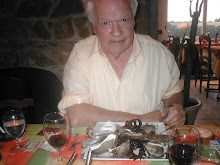When Wales came back from the dead at Twickenham, ten days ago, to beat England at rugby, was there an Englishman who leapt rejoicing in the air? You bet – it was me. And I was cheering Italy when they almost did the same in Rome last Saturday. In 2003, I groaned when Wilkinson’s last-minute drop kick sailed high between the posts to win the Rugby World Cup in Australia. Last year I was delighted when South Africa beat us in the final.
Now this is strange, because I’m a fervent patriot. I suffered the agonies and ecstasies of the 2005 Ashes series, too scared to watch much of the time, desperate for England to win. When it comes to football, a sport which normally doesn’t interest me, I follow England in World or European Cups with passion and finally deep gloom. I will be cheering Great Britain in the Olympics. I am capable of having to hold back tears when I hear ‘Rule, Britannia!’, ‘Land of Hope and Glory’ or Blake’s ‘Jerusalem’. During the Falklands War I contributed to a book of ‘Authors take sides’ on the justice of the conflict. I was one of very few (Kingsley Amis and Alan Sillitoe were among the others) who saw Britain’s cause –freeing our people--as just. I rejoiced when Mrs Thatcher said, ‘Rejoice!’
So why my hostility to England on the rugby field? It’s partly because England play without flair, relying totally on their lumbering tanks in the scrum and Wilko’s boot. But in other sports I don’t care how dully we play so long as we win. One factor is that I’m Cornish, and Cornwall is not quite English; we have our own Celtic culture, akin to the Welsh. Even the knowledge that England is led by a Cornishman, Phil Vickery, doesn’t change my feelings. I know it’s irrational.
Added to the Celtic element there’s a question of class. Cornwall has always been passionate about rugby, and as in Wales it has been rooted in the working classes. Tin miners would do an exhausting shift, climb up interminable ladders, then play a game of rugby. ‘Twickers’ still carries, for me, a feeling of class privilege, Rolls Royces and champagne picnics. The unmusical braying of ‘Swing Low’ from the stands antagonises me, while a Welsh crowd harmonising ‘Land of my Fathers’ stirs my Celtic bones.
I owe some of this to my father, a plasterer. He voted Labour, but after spending his youth in California he was essentially an American Democrat; he worshipped Roosevelt. Soon after his return to Cornwall/England, his boss on a building site shouted at him, ‘Thomas!’ My father replied, ‘I’ve got a handle to my name.’ He taught me, a young boy in the war, to admire the Yanks and the Red Army more than the Brits, with their stuffy, baton-swaggering officers. I was unsure therefore of my sporting loyalties; I cheered Bradman’s cricketers against us in 1948; but then, when we moved as a family to Australia for a couple of years, I cheered for England. I remain confused. I know I’m not European: I can’t support Europe in the Ryder Cup.
During the 2007 rugby World Cup, I was on the Greek island of Skyros, leading a creative writing workshop. I took my students to the grave of Rupert Brooke. On his way to fight in the Dardanelles in 1915, Brooke’s ship moored off the coast of Skyros for training. The young, charismatic poet-soldier developed a fever, probably as a result of a mosquito bite at Port Said. He died, and his fellow officers and men buried him in an olive grove which he himself had described as wonderfully quiet and beautiful. There is the scent of sage, and the distant tinkle of goat bells. I showed my students the grave, and read the famous sonnet inscribed on it, starting ‘If I should die, think only this of me:/ That there’s some corner of a foreign field/ That is forever England…’ Close to tears, I felt and shared Brooke’s love of England.
I was thinking, like the poet, of the England he left behind: the quiet rolling pastures and woods, shire horses and haywains; empty uncluttered roads, not bristling with bumps, warnings and CCTV cameras; sovereignty and freedom, no EU directives; English common law, free speech and habias corpus; huntsmen smoking their peaceful pipes before a roaring fire in a hostelry…
This nostalgic vision is not the complete picture, of course. No one can deny that the lives of ordinary people have improved immeasurably. But something vital has been lost that need not have been lost. On returning to England from abroad these days, I have a sense of restriction rather than enlargement. I no longer feel this is a free country. So many of the laws brought in over the past ten years seem mean and vindictive. The smoking ban affects me, the hunting ban doesn’t; I’ve never wanted to hunt foxes; but the ban upsets me deeply. Hunting is an ancient English tradition; and the suffering inflicted on foxes, who at least live and die in the wild, can’t be compared with the suffering of billions of factory-bred animals. There’s so much hypocrisy.
This is an England from which terrorists cannot be expelled, yet my Canadian wife, whose countrymen fought and died beside us in two world wars, had to take a test to be allowed to stay here. I can’t get my head around the craziness of that.
None of this affects my patriotic confusions. I want England to win everywhere except on the rugby field. I don’t love my native country any the less: its landscape, history and culture, Shakespeare and Elgar. But I feel increasingly alienated from the England the politicians have created. The England I love is now more in my heart and imagination – and even in that hot, tranquil Grecian olive grove-- than in reality.
Subscribe to:
Post Comments (Atom)

No comments:
Post a Comment